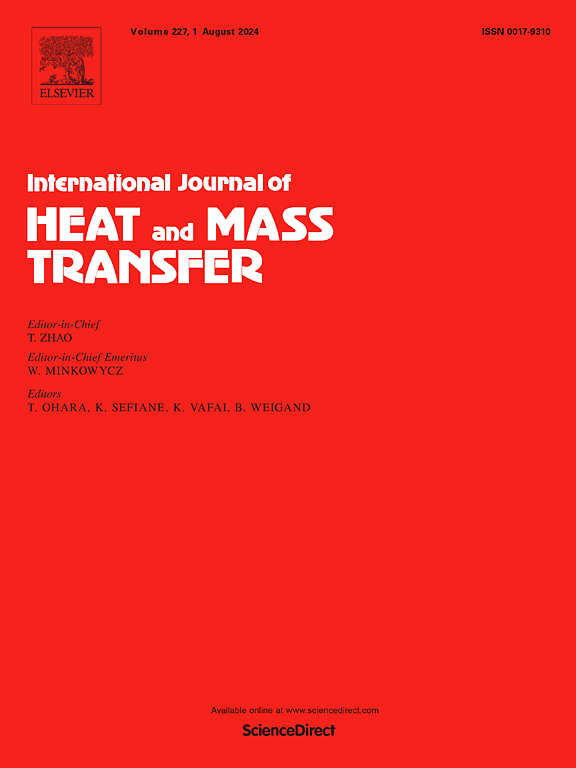用于热点热管理的微通道散热器:实现最小压降和最大热性能
IF 5
2区 工程技术
Q1 ENGINEERING, MECHANICAL
International Journal of Heat and Mass Transfer
Pub Date : 2024-11-09
DOI:10.1016/j.ijheatmasstransfer.2024.126411
引用次数: 0
摘要
在热点区域,热通量可能比周围区域高出几个数量级,因此管理热点区域的温度成为一个突出问题。本研究介绍了三种创新的散热片设计,可有效控制热点区域的高温,同时最大限度地降低功耗。我们对这些设计的水力和热力性能进行了数值评估,并将其与传统的直平行微通道(SPMC)散热器和以往文献中的设计进行了比较。通过在热点区域集成针状鳍片,并将流体入口置于热点上方以充分利用射流冲击,这些设计显著提高了热点区域的传热系数。与 SPMC 设计相比,采用歧管配置的 MMC 结构的压降降低了 81.4%。RMC 结构的温度均匀性更好。此外,还研究了射流入口角度对 RMC 散热器水热性能的影响。AMC 结构集成了 RMC 和 MMC 的优点,与 SPMC 设计相比,压降降低了 87.9%,令人印象深刻,彰显了其先进的性能。本文章由计算机程序翻译,如有差异,请以英文原文为准。
Microchannel heat sinks for hotspot thermal management: achieving minimal pressure drop and maximal thermal performance
In hotspot regions, where heat flux can reach several orders of magnitude higher than in surrounding area, managing hotspot temperatures becomes a prominent issue. This study introduces three innovative heat sink designs that effectively manage high temperatures in hotspot regions while minimizing power consumption. The hydraulic and thermal performances of these designs were evaluated numerically and compared with those of the conventional straight parallel microchannel (SPMC) heat sink and previous designs from the literature. By integrating pin-fins in hotspot regions and positioning the fluid inlet above the hotspot to leverage jet impingement, these designs significantly improved the heat transfer coefficient in hotspot areas. The MMC structure, featuring a manifold configuration, achieved an 81.4 % reduction in pressure drop compared to the SPMC design. The RMC structure demonstrated superior temperature uniformity. Additionally, the impact of the jet inlet angle on the hydraulic-thermal performance of the RMC heat sink was investigated. The AMC structure, which integrates the benefits of both RMC and MMC, achieved an impressive 87.9 % reduction in pressure drop compared to the SPMC design, underscoring its advanced performance.
求助全文
通过发布文献求助,成功后即可免费获取论文全文。
去求助
来源期刊
CiteScore
10.30
自引率
13.50%
发文量
1319
审稿时长
41 days
期刊介绍:
International Journal of Heat and Mass Transfer is the vehicle for the exchange of basic ideas in heat and mass transfer between research workers and engineers throughout the world. It focuses on both analytical and experimental research, with an emphasis on contributions which increase the basic understanding of transfer processes and their application to engineering problems.
Topics include:
-New methods of measuring and/or correlating transport-property data
-Energy engineering
-Environmental applications of heat and/or mass transfer

 求助内容:
求助内容: 应助结果提醒方式:
应助结果提醒方式:


